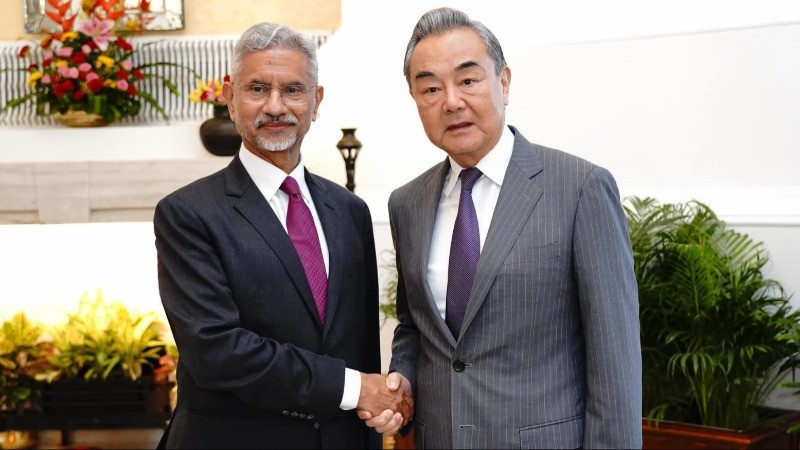
India and China had a positive outcome during the recent bilateral meeting upon China's Foreign Minister Wang Yi's visit to India. The Chinese counterpart assured External Affairs Minister Dr. S Jaishankar that his country will resume supplying fertilizers, rare earth minerals, and tunnel boring machines (TBM), as the neighboring nations normalise strained ties.
Last month, EAM Jaishankar must have raised the issue of supplies of urea, NPK, DAP, rare earth minerals, and TBM with Minister Wang Yi, when he visited China. Discussions on boundary talks and border issues were carried out by National Security Advisor (NSA) Ajit Doval during the Special Representative Dialogue today. Minister Wang also met Prime Minister Narendra Modi later in the evening.
Jaishankar told Wang that India and China should view each other as partners, rather than adversaries or threats. Adding that they were seeking to move ahead from a difficult period in ties.
He also clarified that India's position on Taiwan is clear, without any change. Just like the world, India also maintained a diplomatic presence for economic and cultural ties.
The cordial talks were driven by the need to come closer due to US President Donald Trump's recent policies, influenced by the belief that they will target both India and China, and they need to stand together amid global uncertainty. Prior to meeting PM Modi, Yi said that the relations are now on a positive trend, towards cooperation.
China agreeing on the supply of fertilisers, TBM, and rare earths comes as a major development, as it had halted Indian imports for nearly a year. India imports nearly 30 percent of fertilisers for agriculture, rare earths for auto parts, and tunnel boring machines for road and urban infrastructure.
The evening's Special Representative Dialogue between Ajit Doval and Wang Yi focused on the de-escalation of forces on the 3488 km Line of Actual Control (LAC). The border friction and patrolling issues in Ladakh have been sorted out; however, the troops are still deployed, and there is a need to push them back.
Doval stated that there is an "upward movement" in the ties, and "the borders have been quiet", ever since his last visit to Beijing. He said, "There has been peace and tranquility. Our bilateral engagements have been more substantial. And we are most grateful to our leaders, who, in Kazan, last October, were able to set a new trend, and we have profited a lot since then."
He also reflected upon the past setbacks as something that was not in the interests of the people of both countries. Wang Yi noted that both sides need to follow the strategic guidance of their leaders, increasing mutual respect through strategic communication, expanding common interests through exchanges and cooperation, as well as "properly settle the specific issues on the border so as to advance the relationship in a healthy and sound manner."
#WATCH | Delhi: During meeting with Chinese Foreign Minister Wang Yi, NSA Ajit Doval says, "...There has been an upward trend. Borders have been quiet. There has been peace and tranquillity. Our bilateral engagements have been more substantial. And we are most grateful to our… pic.twitter.com/Ngz8e1S3xj
— ANI (@ANI) August 19, 2025
Later this month, Prime Minister Narendra Modi will be traveling to China to attend the SCO summit on August 31 and September 1.